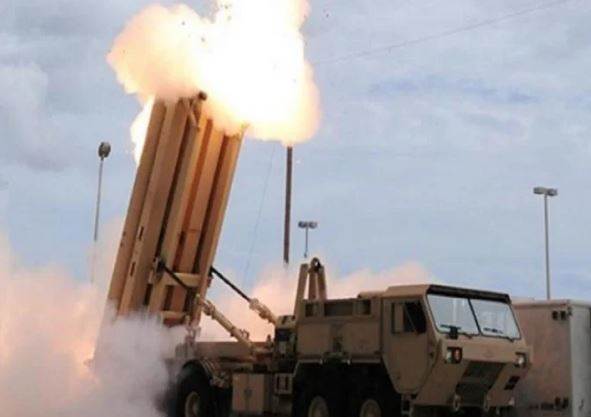
19-May-2020
The Current Scenario Of Defence Sector Will Tranform
Today a question is being asked that when the country's economy needs to be revived, what was the need to announce the new rules of Foreign Direct Investment (FDI) in the defense sector.
There are two reasons for this. First, it is not going to put any economic burden on the country. Rather it can bring more money to the industrial complex of the defense sector, where improvement is needed. And second, that such an opportunity rarely comes when a macroeconomic initiative is taken, and thus now there was a chance to do it, so it has been done.
India is one of the largest arms buyers in the world, whose armed forces need more than $ 200 billion for the next decade. This has made India a favorite of arms exporters, particularly in the eyes of the US, France, and Russia. And India has never hesitated to use its purchasing power to take diplomatic benefits! However, this may change after the recent announcement, under which FDI limit in defense manufacturing will now be automatically reduced from 49 percent to 74 percent and there will be a need to create a negative list of imported weapons.
This will give a boost to the Prime Minister's 'Make in India' initiative, which has received very little investment in the defense sector and will reduce the arms import bill. The reason why India produces state-of-the-art rockets and missiles is that India's rocket scientists have had to work within the strategic restrictions of advanced countries to ensure that no one enters the 'big league' Could. Therefore, scientists in India have produced satellite launch systems and missiles, which are now demanded by other countries.
However, these P5 countries were happy to sell their weapons system with some restrictions. Therefore, the Armed Forces of India often bought heavy weapons from abroad as an important purchase, with the argument that India's defense sector public undertakings (DPSUs) had failed to meet their needs. And if the private sector also developed quality weapons (like Bharat Forge made artillery), it was kept out of the South Block corridor in collusion with military and naval power.
READ HERE MORE : Are We Ready For Another Wave Of Geo-Politics ?
Earlier in 2016, the Modi government had expected a revised FDI limit of 49 percent through automatic route and in the special case FDI up to 100 percent. But India got Rs 7,59,325 in 2017-18 ($ 10,000) and Rs 16,55,32,850 in 2018-19 ($ 21 lakh), which is negligible. But now if the foreign original equipment manufacturer controls 74% of the company's stock, it will be willing to invest, as it could change the 'government' work culture of DPSU, and thus produce world-class military technology.
It is reportedly the reason why it took so long for a deal with Dassault Aviation, the maker of the Rafale fighter aircraft, to refuse to make an Indian public sector undertaking (HAL) as its partner. Most of India's big business houses (which have set up large plants and manufacturing bases) are deeply disappointed by the DPSUs and their bureaucrats, who have ensured that things remain the way they are. Due to this, India failed to get FDI in defense PSUs.
Consequently, it stalled the development of an effective defense manufacturing base in India and bypassed the private sector in the field of defense production. Due to delay in decision making, placing of 'ad hoc' orders, cancellation of tenders, and undue qualitative needs of the armed forces, the defense manufacturing sector was left to a few companies. But if the new initiative attracts foreign and Indian investors, it will long be corporatization of the rest of the DPSUs, not privatization, as their employee organizations fear.
This will give our private sector a chance to equalize the list of armed forces. At present, the three military services need a lot of weapons, which are necessary for the security needs of the country. Despite the effects of the Corona crisis on the economy, it cannot be ignored, especially because China and Pakistan together want to destabilize India from terrorist threats along the border.
No country in the world is facing two nuclear-rich nations, which not only take provocative actions but also aim to challenge the rise of India. However, production from this process will take years to meet the needs of the armed forces.
Past experiences show that it took sixteen years to build the Arjun tank and 30 years to build the Tejas. And the entire blame for this delay cannot be blamed in the armed forces. The weapons testing process is very long, which the finance minister mentioned while also announcing changes in the FDI rule. But now things can change.
India urgently needs to simplify its defense procurement process, give adequate orders to Indian companies and give reasonable time for production. But most decision-making needs to be accelerated.
Equally important is the fact that the DPSU and India's industry need a clear export policy on defense equipment along with assured purchase orders, which were produced but not used by the armed forces. India needs to export defense equipment that is already manufactured by DPSUs or private manufacturers. When India became independent, a year later, Israel became a nation and is the defense superpower now. Can we expect the same for India ?

Content Writer/Journalist
I am a content writter !
Join Our Newsletter
Subscribe to our newsletter to receive emails about new views posts, releases and updates.
Copyright 2010 - 2026 MindStick Software Pvt. Ltd. All Rights Reserved Privacy Policy | Terms & Conditions | Cookie Policy